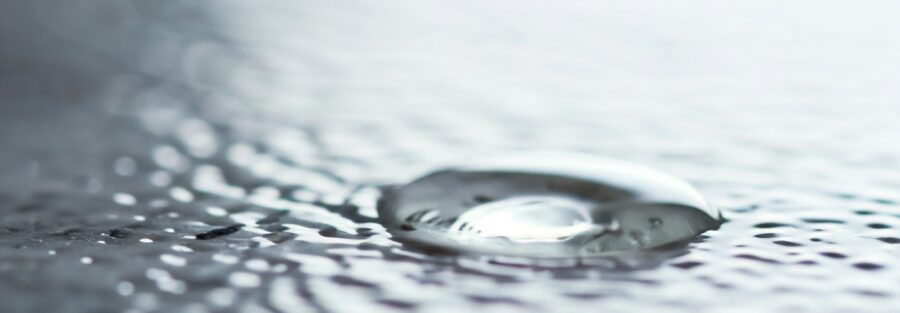Natural stone surfaces exude elegance and timeless charm. From the smooth veining of marble to the rugged textures of slate, these materials bring sophistication and durability to any space. However, even the most robust stone surfaces require care to maintain their allure. Stone sealing is the unsung hero of preservation, acting as a shield against stains, moisture, and wear. Whether you have stone countertops, patios, or tiled floors, sealing is a fundamental step in ensuring their longevity and pristine appearance.
Let’s delve into the essentials of stone sealing and why it is a transformative practice in safeguarding your investment.
Why Sealing Natural Stone Is Essential
At first glance, natural stone appears indestructible. However, its surface often hides tiny pores that can absorb liquids, dirt, and even harmful chemicals. This porosity, while giving stone its unique texture and beauty, also makes it susceptible to damage. Without sealing, water can seep into these pores, leading to discoloration, cracking, and even erosion.
Sealing acts as an invisible barrier, preventing these issues. It keeps water, oils, and other contaminants from infiltrating the stone’s surface. Beyond protection, sealing can amplify the stone’s natural beauty, bringing out richer colors and deeper textures that may otherwise go unnoticed.
Benefits of Sealing Natural Stone
1. Stain Resistance
Spills are inevitable, but their impact on a sealed surface is minimal. Coffee, wine, and cooking oils are notorious for staining unsealed stone. With a quality sealant, these substances bead up on the surface, allowing you to wipe them away with ease.
2. Moisture Protection
Water can be the nemesis of natural stone, particularly outdoors. When moisture seeps into stone, it can weaken its structure over time, leading to cracks or mold growth. Sealing provides a watertight barrier that prevents these issues, making it especially vital for patios, pool decks, and bathrooms.
3. Enhanced Longevity
Stone sealing significantly extends the lifespan of your surfaces. By shielding them from wear and tear, sealing minimizes the likelihood of chips, cracks, and other damage. This proactive approach saves money in the long run by reducing repair and replacement costs.
4. Improved Aesthetics
A high-quality sealer enhances the stone’s appearance by intensifying its natural hues and adding a subtle sheen. It transforms a dull surface into a striking focal point, elevating the overall aesthetic of your space.
5. Ease of Maintenance
Sealed stone is a breeze to clean. Dirt, dust, and spills sit on the surface rather than penetrating the material, allowing for quick and effortless upkeep.
Sealing Processes: A Step-by-Step Overview
Achieving the best results from stone sealing requires careful preparation and execution. Here’s a step-by-step guide to the process:
- Cleaning the Stone
Begin by thoroughly cleaning the surface. Remove dirt, stains, and any residue with a pH-neutral cleaner. For stubborn stains, use specialized stone-safe cleaning products. The surface must be completely dry before applying the sealant. - Choosing the Right Sealer
Not all sealers are created equal. Choose one that suits your specific stone type, whether it’s granite, marble, travertine, or slate. Consider the location of the stone (indoor or outdoor) and the desired finish (matte, glossy, or natural). - Application
Apply the sealer evenly across the surface using a brush, roller, or sprayer. Work in small sections to ensure even coverage. Avoid pooling, as excess sealer can leave a sticky residue. - Curing Time
Allow the sealer to cure fully, which typically takes 24–48 hours. During this time, avoid placing objects on the surface or exposing it to moisture.
Maintaining Indoor and Outdoor Stone
Indoor Stone Maintenance
Indoor stone surfaces like countertops and tiled floors face less exposure to harsh elements but still require regular care:
- Daily Cleaning: Wipe surfaces with a soft cloth or mop and a pH-neutral cleaner.
- Avoid Harsh Chemicals: Acidic or abrasive cleaners can damage the seal and the stone beneath.
- Reapply Sealer: Most indoor stone surfaces need resealing every 5–7 years. Check for signs of wear, such as water no longer beading on the surface.
Outdoor Stone Maintenance
Outdoor stone faces the dual challenge of weather extremes and heavy use. Regular upkeep is essential:
- Regular Washing: Use a gentle hose spray or soft-bristle brush to remove dirt and debris.
- Protect from Weather Extremes: Cover outdoor stone during harsh winters or intense summer heat to prevent cracking or discoloration.
- Frequent Inspections: Look for fading or wear in the sealer. Outdoor stone may require resealing every 3–5 years, depending on exposure and use.
Comparison Table: Sealing Natural Stone vs. Other Protection Methods
Protection Method | Pros | Cons | Price Per Sq. Ft. | Durability | Maintenance |
Stone Sealing | – Enhances natural beauty | – Requires reapplication every few years | $1–$3 | Excellent (5–10 years) | Low |
– Protects against stains/moisture | – Professional application recommended | ||||
Epoxy Coating | – Extremely durable | – Alters natural stone appearance | $4–$12 | Excellent (10–20 years) | Low to moderate |
Wax Coating | – Easy to apply | – Requires frequent reapplication | $0.50–$2 | Low (1–2 years) | High |
– Adds a glossy finish | – Limited protection against moisture | ||||
Impregnating Sealers | – Penetrates deep into stone | – Higher cost compared to topical sealers | $2–$5 | Excellent (10+ years) | Low |
– Maintains natural look | – Limited availability | ||||
Acrylic Sealers | – Affordable | – May yellow over time | $1–$3 | Moderate (3–5 years) | Moderate |
– Provides a wet look finish | – Less durable |
Frequently Asked Questions
1. Should you seal natural stone?
Yes. Sealing is essential for protecting natural stone from stains, moisture, and wear, ensuring its longevity and maintaining its appearance.
2. What is the best natural stone sealer?
Impregnating sealers are often considered the best due to their deep penetration and long-lasting protection without altering the stone’s natural look.
3. How often does natural stone need to be sealed?
Indoor stone surfaces typically require resealing every 5–7 years, while outdoor stone may need reapplication every 3–5 years due to harsher conditions.
4. Are natural stones waterproof?
No, natural stones are porous and absorb water if not sealed. Sealing creates a barrier that repels moisture.
5. How long does outdoor stone sealer last?
Outdoor stone sealers generally last 3–5 years, depending on weather conditions and usage.
Natural stone surfaces are a testament to elegance and durability. However, their beauty is best preserved through proper sealing. From protecting against stains and moisture to enhancing the stone’s natural allure, sealing is an indispensable step in stone care. Whether you’re safeguarding an outdoor patio or maintaining a luxurious indoor countertop, sealing ensures your surfaces remain pristine for years to come. Protect your investment and keep your stone surfaces looking their best—seal them today!

